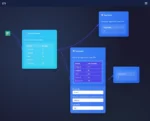In today’s dynamic data ecosystem, businesses and innovators are being driven towards rapid, iterative growth in their data pipelines. With more robust analytics platforms, continuous integration, and near real-time data processing, schema evolution emerges as a critical consideration. Schema evolution—the changes that occur over time to the structure of data—is not merely an inconvenience to developers, but a strategic opportunity to proactively manage data quality, leverage scalability, and unlock enhanced analytics capabilities. Effective schema evolution handling allows data pipelines to adapt gracefully, maintaining reliable insight generation even as data stores transform. As trusted technical strategists in consulting engagements covering the breadth of data, analytics, and innovation, we understand that strategically managing schema evolution can significantly impact your organization’s analytical maturity, competitive advantage, and decision-making agility.
Why Schema Evolution Matters in Data Pipelines
Data pipelines are the lifeblood of decision-driven organizations, providing the vital data streams necessary to power insights, tailor operations, and predict outcomes. One of the key challenges in maintaining effective and efficient data pipelines lies in the management of schema evolution. Schemas—structured definitions of incoming and stored data—tend to evolve naturally over time due to changing business requirements, expanding analytics needs, or updates in upstream data sources. As a result, a strategic approach to schema evolution handling is critical to ensure data integrity, accuracy, and reliability.
Organizations ignoring schema evolution run significant strategic and operational risks. Unanticipated schema changes can lead to pipeline failures, delayed analytics, and erroneous insights, costing enterprises precious time and resources. Furthermore, suboptimal handling of schema evolution can restrict scalability and limit innovation, severely hampering analytical potential. Therefore, proactively managing and embracing effective schema evolution strategies ensures pipelines remain robust, flexible, and prepared for future growth.
Businesses intent on harnessing advanced analytics consulting services need to place schema evolution handling front and center in their data management strategy. Solutions such as dynamic schema adaptation, intelligent alerting, and automated ETL processes contribute significantly to analytics maturity, ultimately driving smarter business decisions.
Best Practices for Efficient Schema Evolution Handling
Adopting a Schema Evolution Strategy
The first step in handling schema evolution effectively is establishing clear guidelines for schema management. Leaders advocating greater analytical agility must begin by developing comprehensive schema evolution strategies. Key principles of these strategies include anticipating future data needs, transparent communication between data teams and stakeholders, and establishing resilient workflows to deal with schema changes quickly.
One powerful approach involves versioning schemas explicitly and treating schema definitions as code. Schema specifications—much like software code—should be continuously tracked, validated with automated tests, and deployed systematically. Version control tools paired with schema registries and repositories make schema management transparent and straightforward, ensuring changes in data formats or structures do not catch teams off-guard. Keeping schema in line with organizational analytics frameworks drives accuracy and ensures stakeholders have ongoing confidence in their data insights.
Leveraging robust extract-transform-load strategies is crucial. Invest time in understanding the integral role of ETL solutions in data integration, and include schema consideration right from design and implementation stages. An effective ETL strategy mitigates schema change disruptions, ensuring your business consistently leverages meaningful insights in near real-time, despite evolving data sources.
Utilizing Tools and Automation
Smart use of specialized tools streamlines handling of schema evolution and enhances pipeline robustness. Schema registries and automated schema validation platforms proactively detect schema drifts and incompatibilities, alerting developers to schema issues before they become significant operational problems. This automation translates directly into reduced downtime, accelerated maintenance, and better resource allocation.
Additionally, providing your team with access to powerful data visualization applications—through installing industry-leading platforms like Tableau Desktop—enables faster debugging of schema evolution issues with ease, clarity, and precision. Intuitive visualizations offer instant validation and identification of discrepancies or relationships between different schema versions. Investing in visualization extracts maximum value from data environments, ensuring stakeholders remain aligned on evolving schema and analytics demands.
Employing scripting languages such as Python further enhances automation. Teams can leverage Python’s flexible libraries and frameworks for tasks such as data parsing, transformations, validation tests, or dynamic schema adjustments. Effective use of Python scripts for tasks such as web-scraping with dynamic schema requirements demonstrates how automation facilitates sustainable growth and innovation in data ecosystems.
Impacts of Schema Evolution on Data Analytics and How to Address Them
Maintaining Data Consistency and Integrity
A key benefit of adept schema evolution management is ensuring data consistency and integrity. Unplanned or unmanaged schema evolution often results in serious consequences, including data redundancy, aggregate retrieval inefficiencies, compromised data integrity, and even interrupted business workflows or analytical insights. By adopting clearly implemented schema strategies, businesses precisely anticipate pipeline behavior and uphold reliability of their analytical insights.
Appropriate usage of schema validation tools and automated testing frameworks ensures confidence in the consistent validity of your data models even through significant pipeline transformations. Modern analytics platforms and best practices—such as advanced Tableau consulting—support visibility into schema evolution implications, giving organizations control they need to maintain trust and regulatory compliance around data use.
Enhanced Scalability and Business Agility
Strategic schema evolution enables pipeline scalability and improved business agility. Organizations capable of adapting rapidly to evolving schemas reduce lead time turning data into actionable insights, helping businesses achieve competitive advantages.
Moreover, data engineering teams can implement techniques that enable fluid evolution of schemas, such as dynamic schema applications, no-schema databases or flexible schema storage. Organizations seeking guidance can benefit from reading our comprehensive guide – Data Engineering for Small Teams: Maximizing Impact. These efficient schema handling approaches promote rapid scaling and drive business agility. Leading businesses continuously develop schema evolution management methods and rapidly adapt to analytics needs, responding effectively to data opportunities as they arise.
Common Challenges and Recommendations
Despite clear benefits, schema evolution handling presents common challenges. Unauthorized schema modifications, insufficient communication between analytics and engineering teams, or inadequate schema change history inevitably restrict data pipeline robustness. Thorough managing and revoking privileges in access control can mitigate instances of unauthorized data or schema manipulation, reducing disruptive risk considerably.
Choosing appropriate tooling or platforms for schema evolution remains critical. Different pipelines and analytics needs demand unique schema handling. Understanding platform choices, such as comparing Mac vs Windows operating systems for optimized JavaScript handling, ensures your team uses appropriate environments, leading to smoother schema handling and better developer productivity.
At the management level, fostering robust communication channels between engineering and analytics stakeholders empowers timely identification, negotiation, and resolution of schema evolution needs. Transparent communication and regular alignment meetings assure cohesion across technical teams and better preparedness in managing changes.
Future-Proofing Your Data Pipelines
Ultimately, schema evolution handling involves adopting strategies that enable dynamic data pipeline adaptation. Organizations who maintain proactive schema evolution approaches undoubtedly grow stronger analytics capabilities and improved decision agility. Strategically leveraged schema management transforms potential disruption into innovation opportunities, enhancing pipeline resilience, data quality, and analytical maturity.
Proactively preparing data pipelines to manage schema evolution changes at scale is now a vital aspect of an organization’s competitive analytics strategy. By following schema evolution best practices, leveraging intelligent analytics and visualization platforms, and fostering robust communications across stakeholder groups, your organization positions itself on the cutting edge of data-driven innovation.
Schema evolution handling is more than avoiding pitfalls—it’s a strategic play for maximum analytical agility. Begin embracing schema evolution management today to propel analytics at your organization, guided by experienced tech strategists and expert consulting partners.

























